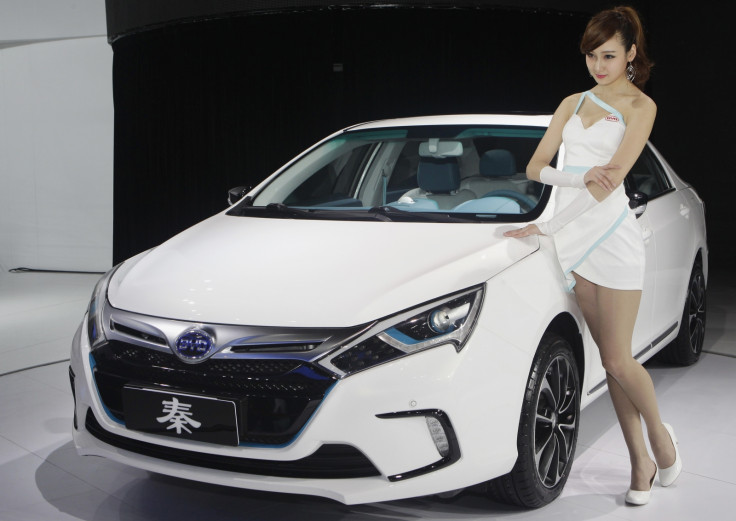China Issues Tax Breaks for Green Cars to Tackle Air Pollution
Tax breaks mostly help domestic manufacturers of 'new energy' cars as China pushes reforms

China has introduced tax breaks on sales of electric cars, in an attempt to reduce pollution in the world's most populous country.
The measure is targeted at sales of energy efficient cars made by Chinese manufacturers.
The country's Ministry of Industry and Information Technology reported that 17 vehicles from 11 manufacturers would be affected by the changes.
China is seeking to boost sales of electric vehicles, as well as hybrid vehicles that run on a combination of electricity and another source of power, such as petrol or diesel.
Electric vehicles sales are already subsidised by Beijing, amid concern over air pollution levels in the country.

In February Chinese scientists warned that toxic smog was so bad it resembled a nuclear winter and threatened the country's food supply.
In its 'new energy' programme for electric powered vehicles, China pays a subsidy of 60,000 yuan ($9,767, £5,876, €7,434) towards purchases of battery cars, while offering 35,000 yuan for hybrid cars.
Government officials were ordered to increase their usage of electric and hybrid cars in July, while China's president Xi Jinping has urged state agencies to increase purchases of domestic brands.
Meanwhile, the government is considering a new tax on gasoline in a bid to fund its green energy push.
Wang Chuanfu, chairman of the electric car maker BYD, said in August that a small tax hike of 0.2 yuan on a litre of gasoline, which could raise billions of yuan in revenues, was under consideration.
In 2012, the government set a target to have 500,000 'new energy' vehicles on China's roads by 2015, increasing to five million by 2020.
In the first six month of 2014, 16,483 'new energy' vehicles were sold in China, more than double the amount in the same period in 2013, according to Automotive Foresight, an industry research firm.
© Copyright IBTimes 2025. All rights reserved.






















